Rushdie, and the victory of words
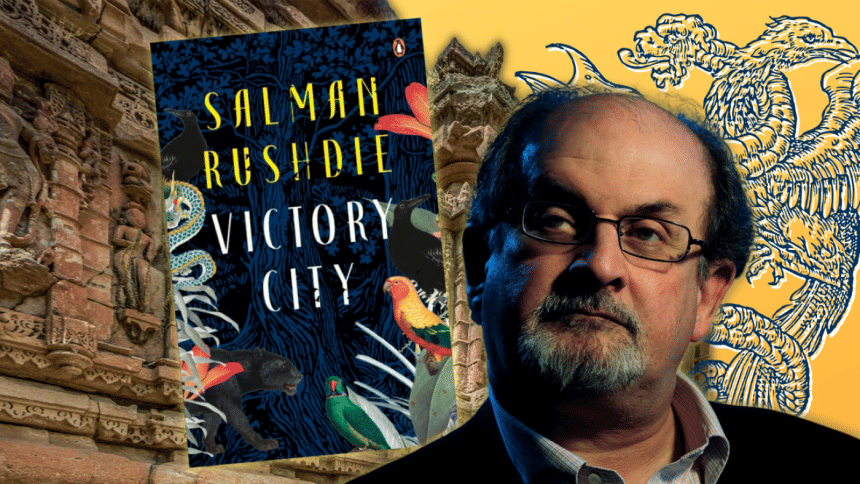
When, on the Valentine's Day of 1989, a BBC reporter asked him how he felt knowing that he had just been sentenced to death by Ayatollah Ruhollah Khomeini, the supreme leader of Iran, all Salman Rushdie could feel was that the sunny Tuesday in London was not sunny for him anymore; it had become gloomy and his life would never be the same again. He was four months shy of 42, and almost two months older than India, his birthplace, where his book had already been banned by Rajiv Gandhi's government because the general election was at hand and the party had people to placate and votes to pocket. The writer wasn't sure anymore whether he would live to see himself, or India for that matter, turn 42.
Victory City is Salman Rushdie's 15th novel and a virtuoso and victorious return to the literary stage of perhaps the most talked about, both vilified and defended, author of his generation. Purporting to be a retelling in plainer language of Jayaparajaya (meaning victory and defeat), a 16th century Sanskrit epic, an immortal masterpiece as long as the Ramayana, and made up of 24,000 verses, it is retold by the present author who claims to be neither a scholar nor a poet but merely a spinner of yarns—it is classic Rushdie, replete with tropes redolent of his previous works, a Rushdie-fied history of the Bisnaga empire.
In this feminist fable, it is Pampa Kampana, the author of Jayaparjaya and the author of the City of Bisnaga, who is the matriarch and with whom the city and the empire rose to insurmountable heights. The story begins with an unnamed battle where all men of the tiny principality of Kampili die. Their wives commit mass suicide by lighting a massive bonfire on the coast of the river Pampa and immolating themselves in the pyre of a burning fire. Radha Kampana, mother of Pampa Kampana, also walked into the fire, but she realises that she would never immolate her body merely to follow dead men into the afterworld. All of this, though, scars Pampa Kampana for her inordinately long life. The pungent air of human flesh burning makes such deep cuts in her psyche that she would never again, in her 247 years-long life, eat meat.
She has a moment of epiphany in which Pampa the goddess—a localised version of the lover of the god Shiva—manifests through Pampa Kampana's body, gyiding her and gifting her with fantastical powers. With a sackful of seeds, she goes on to found a city and an empire. Like Rome, like Romulus and Remus, Bisnaga too had Hukka and Bukka, the Sangama brothers who would rule Bisnaga for a total of 41 years, making it the first golden age of Bisnaga. Pampa Kampana would be married to both Hukka Raya I and Bukka Raya I and would have many people to love throughout her long life.
But her blessed life is a double-edged sword, a curse in which she sees the people she loves grow old before her very eyes and die while she barely ages. Anathematised by eternal youth and burdened with life, Pampa Kampana bears it all. She is to Bisnaga what Athena was to Athens.
In the grand canvas of Rushdie, Bisnaga has it all—patrons and connoisseurs of art and literature, fanatics and zealots, followers and rebels, victors and the vanquished, and it has Vidyasagar—if it is not much of a stretch to say it—the arch-enemy of Pampa Kampana. Her fortune fluctuates with that of Bisnaga or, perhaps Bisnaga with that of hers. She makes a city, an empire, alive by whispering words, by playing with words, just as Rushdie does it—spinning magic worlds with words. Just as Pampa Kampana, Rushdie also relishes in the ecstasy of the act of creation, the creation of stories.
Rushdie is no novice to blending facts with fiction and fantasy. Victory City reads more like historical fiction than a pure fantasy novel. Rushdie doesn't just write a scene, he portrays them as vividly as humanly possible, making all the characters come alive in a reader's imagination.
How does one tell the dance from the dancer, the art from the artist and the writing from the writer? One cannot, for they are the two sides of the same coin. Rushdie's books have always been littered with historical and literary allusions, alliterations, allegories and metaphors, and Victory City is no aberration from the Rushdian norm. It is a victory for the writer, and his immaculate prose is once again the victor.
Being the Cassandra of his own fate is not something completely new to Salman Rushdie but the prescience in Victory City is striking and terrifyingly palpable. Pampa Kampana, at the end of her life, is blinded, and so was Rushdie just a few months ago. He lost his ability to see in the right eye among other severe injuries. Pampa Kampana was also unable to write herself, needing to have a scribe. All these simulacra might just be ludicrous, but what is not ludicrous is that he was almost killed for his writings. The literary world should stand by him now more than ever.
Salman Rushdie will live on among the pantheon of the greats of literature and not because of the fatwa and all the controversies surrounding it but despite it. All the Ayatollahs will perish, even Rushdie himself will have to eventually bid adieu to life but his stories are anything but perishable—they will last; they will outlast the fatwa, the Ayatollahs, the fanatics and all those who wanted and still want to take away the inalienable right of a writer to write, those who were not merely offended but insisted on a right not to be offended and deemed it not merely morally permissible but rather, preposterously, an obligation to take the life of a writer for the grave sin of writing a book.
Najmus Sakib studies Linguistics at University of Dhaka and is a maester at the school of self-loathing.

 For all latest news, follow The Daily Star's Google News channel.
For all latest news, follow The Daily Star's Google News channel. 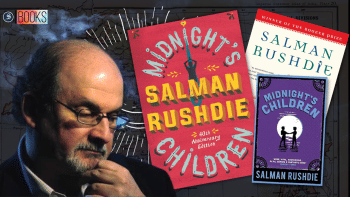
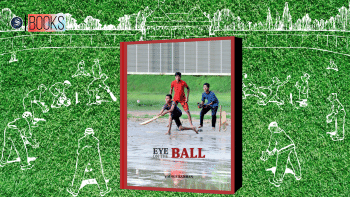
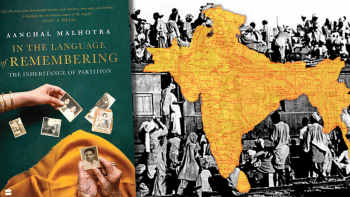



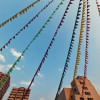


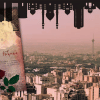


Comments